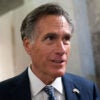Obamacare will force health care spending to rise faster and higher over the next decade than if Congress had just left the nation’s health system unchanged. That’s according to a recent report from the Office of the Actuary at the Center for Medicare and Medicaid Services.
The report projects the new law will inflate national health expenditures by an additional $88.8 billion in 2019 alone. So much for the President’s promise that Obamacare would bend the cost curve down.
The White House tried to put a happy face on the unwelcome CMS report. It just goes to show, the Administration claimed, that spending under Obamacare will decrease by $1,000 per insured person.
That sounds pretty good, but Richard Foster, Medicare’s chief actuary, promptly called the White House numbers “not meaningful.” Temple mathematics professor John Allen Paulos noted, “It’s not that it’s false, it’s just that it will be a little misleading.”
Associated Press reporter Ricardo Alonso-Zaldivar explained why:
“Consider an imaginary country with just three citizens, Peter, Paul and Mary. Peter has health coverage but Paul and Mary are uninsured. Peter spends $1,000 on health care, but Paul and Mary can only afford $500 apiece because they lack coverage. Total national spending: $2,000. National spending per insured person: $2,000.
Now suppose a law gets passed to expand coverage. Paul gets insurance, but Mary remains uninsured. Now Peter and Paul are spending $1,000 apiece. Paul spends more than when he was uninsured, so total national health spending goes up to $2,500.
But because more people are covered, spending per insured person goes down to $1,250.”
Medicare’s Foster says the most meaningful way to assess the new law’s effect on health spending is to look at per capita costs with and without Obamacare. Without Obamacare, he projects per capita health spending at $13,387 in 2019. With Obamacare (including its unrealistic assumptions of being able to save money through massive cuts to Medicare) that number rises to $13,652.
So, it looks like bending the health cost curve down will have to wait for another day—when the Patient Protection and Affordable Care Act is repealed and replaced with real, fiscally responsible reforms.































5 Replies to “Side Effects: Fuzzy Math Won’t Bend the Health Care Cost Curve”